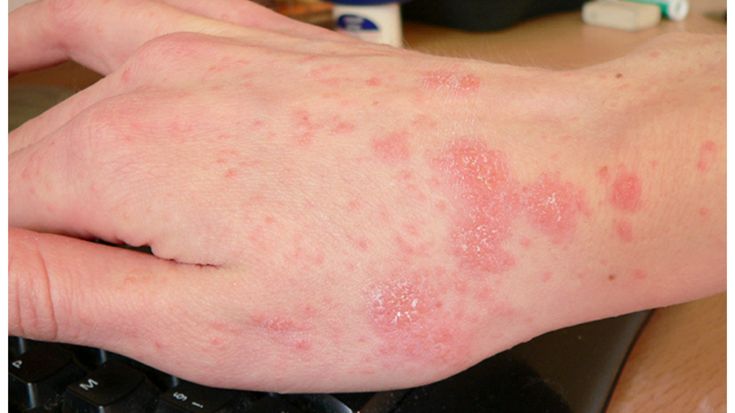Can You Get Monkeypox More Than Once
Monkeypox is a rare viral disease that is similar to, but less severe than, smallpox. While reinfections with monkeypox are possible, they are quite rare. Typically, once a person recovers from monkeypox, they develop immunity to the virus, which reduces the likelihood of getting the disease again.
However, there have been documented cases of reinfection with monkeypox, suggesting that immunity may not be lifelong in all cases. The exact duration of immunity and the factors that influence it are still the subject of research. It’s important to note that most people who have had Can You Get Monkeypox More Than Once will likely have long-lasting protection against reinfection, but the possibility of reinfection should not be ruled out entirely.
Understanding Monkeypox

Before we address the question of getting infected more than once, let’s first understand what monkeypox is.
Monkeypox is a viral disease that belongs to the orthopoxvirus family. It was first discovered in 1958 when outbreaks occurred in monkeys kept for research. The virus can be transmitted to humans through animals, particularly rodents. Although Can You Get Monkeypox More Than Once rare, human-to-human transmission can also occur.
The symptoms of monkeypox are similar to but milder than smallpox. They include fever, headache, muscle aches, and a characteristic rash. The disease is usually self-limiting, with recovery occurring within a few weeks. Read about: 7 Warning Signs of Dengue Fever
Immunity and Reinfection
One crucial aspect of understanding monkeypox is immunity. When a person is infected with monkeypox, their immune system responds by producing antibodies to fight the virus. This immune response is what helps the body recover from the infection.
The development of immunity means that if a person has had monkeypox once, they are less likely to get it again. The immune system “remembers” the virus and can mount a defense more effectively if exposed to it a second time. This is a standard principle of how the immune system functions.
The Chances of Reinfection
While the presence of immunity reduces the risk of getting monkeypox again, it does not eliminate it entirely. There have been documented cases of reinfection, albeit rare. These cases suggest that the virus may evolve, or the individual’s immune response may weaken over time.
The risk of reinfection may also be influenced by factors like the individual’s overall health, their specific immune response to the virus, and the strain of monkeypox they were initially infected with.
Progress Towards a Cure for Monkeypox
Efforts to find a specific cure for monkeypox have been ongoing, but as of my last knowledge update in September 2021, there is no definitive cure for this rare viral disease. Current treatment mainly focuses on managing symptoms and providing supportive care. This includes the use of antiviral medications like cidofovir and brincidofovir, although their effectiveness is uncertain and they may have side effects. Vaccination with the smallpox vaccine has shown some success in preventing Can You Get Monkeypox More Than Once, and pain and fever management techniques are used to alleviate discomfort.

Research continues to develop a monkeypox-specific vaccine that would be safer and more effective than traditional smallpox vaccines. Antiviral drugs targeting the monkeypox virus, monoclonal antibodies, immune modulators, and combination therapies are also under investigation. While a specific cure remains elusive, ongoing research provides hope for the future, emphasizing the importance of prevention and vigilance in areas where monkeypox is a concern.For more information visit our page: dailydiscoverie.com
Prevention and Precautions
To reduce the chances of getting monkeypox more than once, it is essential to take preventive measures:
Vaccination: Vaccination against monkeypox is not widely available, but it has been shown to be effective in preventing the disease in some cases.
Avoid Contact with Animals: Since monkeypox can be transmitted through animals, it’s crucial to avoid contact with wild animals and rodents, especially in areas where the virus is known to exist.
Practice Good Hygiene: Regular handwashing and maintaining personal hygiene can help reduce the risk of infection.
Conclusion
In conclusion, Can You Get Monkeypox More Than Once is possible, it is relatively rare. Immunity developed after the first infection provides a level of protection, but it is not foolproof. To minimize the risk of infection, individuals should follow preventive measures and take precautions when in areas where monkeypox is a concern.
Now, you may be curious about some additional details regarding monkeypox. Here are five frequently asked questions:
FAQs
Q. Is there a cure for monkeypox?
Currently, there is no specific antiviral treatment for monkeypox. Supportive care and management of symptoms are the primary approaches.
Q. What is the primary mode of transmission of monkeypox?
The virus is primarily transmitted to humans through contact with animals, particularly rodents. Human-to-human transmission can also occur, mainly through respiratory droplets.
Q. Can monkeypox be fatal?
Monkeypox is generally a self-limiting disease, and fatalities are rare. Severe cases are more common in individuals with weakened immune systems.
Q. Where is monkeypox most commonly found?
Monkeypox is most often reported in Central and West African countries. However, sporadic cases have been documented in other regions.
Q. Is there a vaccine for monkeypox?
There is a monkeypox vaccine, but it is not widely available to the general public. It is primarily used in research and in high-risk groups, such as healthcare workers.










